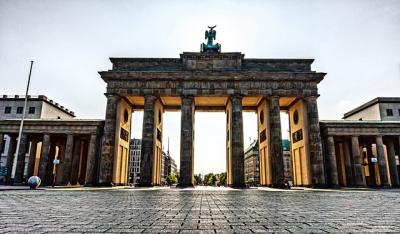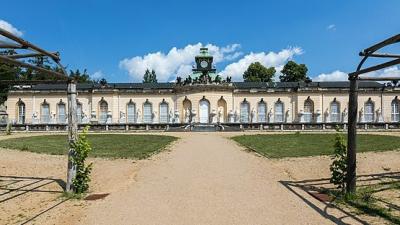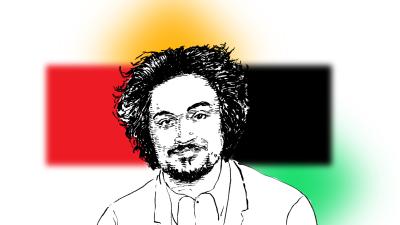German dysfunctionality has a name: Berlin. The heavily indebted federal capital already enjoys the international reputation of being the only European capital whose sudden disappearance would increase the GDP of the whole country rather than decrease it. Tourists may be intoxicated by the "lively diversity" of the metropolis during a day trip; young people who want to escape the city provinces see the place as a dream destination. For all those who cultivate a rudimentary bourgeois lifestyle, on the other hand, Berlin is a hitherto unknown rift in the lower circles of hell in Dante's Inferno.
What was once the centre of Prussia is now the exact opposite of punctuality and discipline: Berlin is considered ungovernable in large parts. Local transport is notoriously late, public offices dally for months in handling various matters, and migrant neighbourhoods are ruled by the respective migrant clans rather than the police. At the same time, Berlin is the Mecca of the progressive left milieu with its home in Prenzlauer Berg, where the inhabitants argue about how many parking spaces should be cleared in favour of bicycle lanes, and innovative ideas like gay and lesbian day-care centres see their birth.
Berlin was the topic of European media after 12 February. The election there caused a stir because the centrist CDU achieved its best result since 1999 - and Social Democrats did worse than they had for a hundred years in their traditional stronghold. But Berlin is virtually insignificant in federal politics; there is hardly any talk of the capital city prestige anymore because of the unrewarding mayor’s office. Much more important than the election of 12 February is what it stands for. It is nothing less than the biggest electoral scandal in the history of the Federal Republic.
For the Berlin election was not a regular election. Nor was it a new election. It was a repeat election - ordered by the Berlin Constitutional Court. According to the court, nothing less than the "loss of confidence in democracy" was at stake. What had happened?
The election of 12 February 2023 was preceded by the election of 26 September 2021. On that day, Berlin not only elected a new House of Representatives and District Assembly at the state level, but also the Bundestag, the German parliament. It was a super election Sunday - which in itself heavily overburdened the city administration. At the same time, Berlin had planned the Berlin Marathon for this very Sunday - and refused to postpone it. The catastrophe became inevitable when queues formed in front of the polling stations as early as 10 am.
The day went down in history as a "chaos election". There was a lack of booths and ballot papers. In some pubs, election workers handed out false ballots. Migrants who were allowed to vote in the state election but not in the federal election received all three slips. In some districts, polling stations had to close and interrupt the voting process - because there were no more ballot papers. New ballot papers did not reach the premises in time because the Berlin Marathon blocked the streets and divided the city on election Sunday. Voters left the pubs unnerved without casting their ballot. For others, it was not possible. While the projections were already flickering across the TVs at 6 p.m., Berliners were still voting. This is forbidden by electoral law - but on this Sunday, anything was possible.
It is true that the mass media reported the events in Berlin on Sunday. It was also difficult to conceal them, since almost every voter in Berlin had witnessed the chaos. In the evening, the results in Berlin had to be "estimated". Even for Berlin, which is rich in scandals, this was an embarrassment.
Imagine if there had been a similarly scandalous election in the USA, in Italy - or even in Hungary or Poland. The German media and German politicians would have denounced the mix-up in an arrogant tone. Yet on this day, everything was different. It was not Rome, Budapest, or Warsaw that had failed. On that day, a banana republic manifested itself only too obviously in Germany.
More scandalous than the election itself, however, was the way it was handled. For although the media denounced the conditions at the Berlin election in the first few days, the accusations soon vanished into thin air. The ruling Social Democrats, who had defended their power in the capital, declared that the chaos during the election had not been relevant to their mandate. The public broadcasters, which with annual revenues of 8.4 billion euros are among the best paid in Europe, stopped their coverage almost immediately. It was as if the city council had simply determined that it needed official approval before it could proceed to presenting an election review. The chaos election was trivialised into a "glitch election". The prevailing conclusion was: It wasn't all that bad. This also says a lot about the understanding of democracy in Germany.
The Bundestag elections, the swearing-in of the new coalition of Social Democrats, Greens and Liberals after 16 years of Angela Merkel, and the Ukraine war diverted the attention of the Germans to other fields. The idea that the outrageous conditions in Berlin on 26 September could be clarified and bear some consequences seemed not to cross people’s minds.
It was mainly thanks to the journalist Roland Tichy that things nevertheless turned out differently. His liberal-conservative magazine "Tichys Einblick" hired a team of young journalists to sift through, check and document the election protocols - 30,000 documents. Although the big media houses did not want to mention the magazine and the young authors’ work because it was politically unpleasant as a conservative medium, they disseminated the results in their own articles and thus kicked off the topic of "Berlin election" again.
The magazine unearthed all the sordid details, from unfilled protocols to the denial of ballots and disastrous conditions that had repeatedly prevented citizens from exercising their democratic right. According to the team, they had experienced repeated harassment in the process. A law firm that had lodged an election complaint with the Berlin Constitutional Court was later even searched by the State Criminal Police Office.
But the plan of left-wing politicians to save their own skin by downplaying, concealing and delaying manoeuvres did not work. After almost a year, the Berlin Constitutional Court ruled that due to the mass of errors, a complete rerun of the election was unavoidable. Something that Berlin's politicians, but also numerous media, had claimed there was no reason to do. They did not want to admit that, under the leadership of the Left, Berlin had been degraded to a city that could not even hold proper elections.
One might think that with the court decision and the rerun of the elections on 12 February, everything would now be in order. But this is not true. On the contrary, German politicians have allowed themselves a manoeuvre that they would have accused of being anti-democratic in many other EU member states. For, as mentioned, not only the state elections took place in September 2021 - but also the federal elections. Their repetition is still pending. And as if this were not enough, the federal parliamentary parties of the ruling Ampel faction have agreed to repeat it only in parts. While the city of Berlin considered rerun of the entire election necessary because of the serious violations, at the federal level the parties claim that it is only necessary to repeat the election at 17 per cent of the polling stations. Why the election chaos should have been different in the federal election than in the state election remains a federal mystery.
Such a decision was only possible because at the Berlin state level it is a court, whereas at the federal level it is the Bundestag that is responsible for reviewing and repeating elections. So politicians judged politicians' failures. And the parties of the left-liberal traffic light coalition ruling at the federal level came to the conclusion that the matter was not so wild. While the Berlin court ordered a complete retrial to prevent the loss of confidence in democracy, the Bundestag seems to be encouraging it.
A piquant detail: at present, the radical left-wing Left Party is in the Bundestag, although it has failed to clear the 5-percent hurdle. This is only possible because of a peculiarity in the German electoral law. If a party wins three direct mandates, it still enters parliament with the number of seats that corresponds to its second votes. The Left Party won exactly three direct mandates in 2021; and two of them through the chaotic election in Berlin, of all places. At least one of them is no longer safe under the current circumstances.
For this reason alone, the Bundestag's avoidance strategy has led many critical media and voters to speculate that the complete election repeat in Berlin is to be avoided in order to prevent a possible shrinking of the German national parliament. The political establishment does not want to be talked into its procedures - and in case of doubt also governs with false election results.
This is precisely why several complaints have already been lodged with the Federal Constitutional Court. Among them was "Tichys Einblick", which had first initiated the rerun of the parliamentary elections in Berlin. All this is not happening in some Third World country, but in the middle of Europe, in a country that styles itself as the guardian of democratic order at the EU level and is very eager to point out the "black sheep" in the neighbouring countries via the press or politics. It is possible that Berlin will continue to do so in the future, despite the problems on its own doorstep. But the other Europeans should take note when Germany once again plays the political moralist.
Read also
No Money For Caravaggio
Many would give their eye teeth for the genuine Caravaggio that hangs in the Sanssouci Picture Gallery. It is the famous depiction of Thomas grasping the wound of the Risen Christ.
Marco Gallina
The Leyen Question
How firmly is EU Commission President Ursula von der Leyen in the saddle? If one follows official accounts, then everything speaks in favour of the German seeking a second term in office and having broad support for it.
Marco Gallina
The Weakness of the CDU
he current crisis of the Christian Democratic Union raises the question whether the CDU is also facing a path similar to that of the Italian Democrazia Cristiana.
Marco Gallina
The Individual on the Defensive
Do Nazis have a right to life? Outside Germany, such a debate might seem perplexing. But during the last days of May, discussions in Germany revolved around nothing less, after a left-wing extremist was released under quite lenient conditions.














Comments (0)